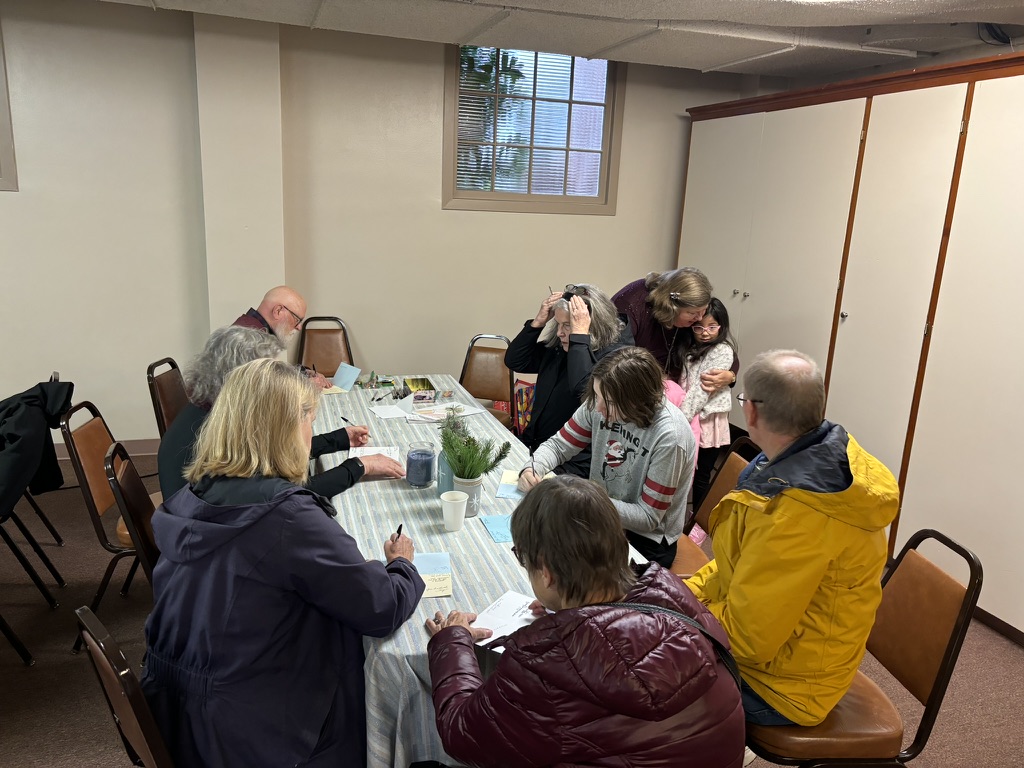
In the last two months, we have seen over 2,000 antisemitic incidents in the United States.
In the last two months, we have seen over 2,000 anti-Muslim incidents in the United States.
Our Jewish and Muslim neighbors are often spending $1,000 per week on security. Individual members of each tradition have to consider carefully if they will wear clothing traditional to their community.
This situation undermines a key American aspirational value: freedom of religion or no religion.
All 4,000 of these incidents, while activated by the events in the Middle East, are created by thousands of years of bigotry woven into Christianity and Western cultures.
This is an emergency not only for our Muslim and Jewish neighbors. It brings threats to all of us. It threatens and hampers law enforcement. It takes money from the mouths of the hungry and puts it into security systems. It threatens our very democracy and our stated, aspirational values.
What can we do?
As a leader in the interfaith movement in Washington State, I have thought about nothing else for the last ten years.
Short Term:
National and regional organizations can publish press releases denouncing the violence. PTU will be doing that, too.
But more powerful than that is when local communities of wisdom and their leaders speak up, relate to, and stand with Muslim and Jewish neighbors. Local press will often cover that. People often pay more attention to what happens in their own community than anything in the Seattle Times or Washington Post.
So here are some things local leaders can do, no matter what their tradition:
- Gather your congregation to write cards and letters of support. I have included a sample letter you can start from. (The photo is from Burlington Lutheran Church card writing session.)
- Hold a fundraiser to help defray the security expenses of local Jewish or Muslim communities.
- Put a sign supporting your Jewish and/or Muslim neighbors in your window. I have included a poster below. I have one in my window.
- Pastors and leaders write a letter to the editor in support of both communities.
- Reach out and offer to do a reciprocal visit.
- Show up with a sign of welcome as people arrive for prayer. I have included posters below.
- Offer prayers for both communities, especially on major holy days.
- Invite one or both to a service project you are doing.
- Offer to support a service project they are doing.
I believe the best strategy to engage right now is neighborhood by neighborhood, wisdom community to wisdom community, and to engage local press.
This last week I spoke to the Anacortes City Council after antisemitic comments were allowed at a previous meeting. My brief words brought a feeling of relief to members of both the Muslim and Jewish communities.
Your words and actions can do the same. Together we can respond to this neighborhood emergency.
When people in the larger community see Christians and other wisdom communities standing up, it reduces anxiety and reduces actual violence.
Long Term:
In the long term, the Christian majority in this country must lead a conversation about antisemitism and how deeply it has been embedded in Christian tradition. I and others are in conversation about what we might do to enable this conversation to take place. I have written a book that will be out soon that can help foster some of this conversation. We must interrogate our theology, biblical interpretation, liturgy, prayers, and who we deem worthy of relating to and standing up for.
In the long term, the Christian majority in this country must lead a conversation about anti-Muslim bigotry. While often related to antisemitism, anti-Muslim bigotry has its own dangerous history, rhetoric, and violent intent.
In the long term, all people of all wisdom traditions must work to counter any antisemitism and anti-Muslim bigotry within our traditions. We must all work to live out the aspirational value of the first amendment not only in theory but in practice.
Poster:
Sample Letter for Sending Cards:
Dear
On Sunday the people of (group, organization, church) spent some time writing cards to send to you. If you will, please share them with your community.
We did this because we are grateful that you are a part of our larger community. Your presence and the work you do in our larger community are a symbol of the love of the Creator for all of us.
We know that this is a time when negative speech about your community is on the rise in our nation. We understand that this is accompanied by a rise in violence toward your community. This grieves us deeply.
We want you to know that you are in our prayers.
We will be sending cards to Jewish and Muslim communities in the area as we see ourselves as siblings within the Abrahamic tradition, as fellow Americans, and as humans made in God’s image.
Peace, Shalom, Salaam,
(group, organization, church)
